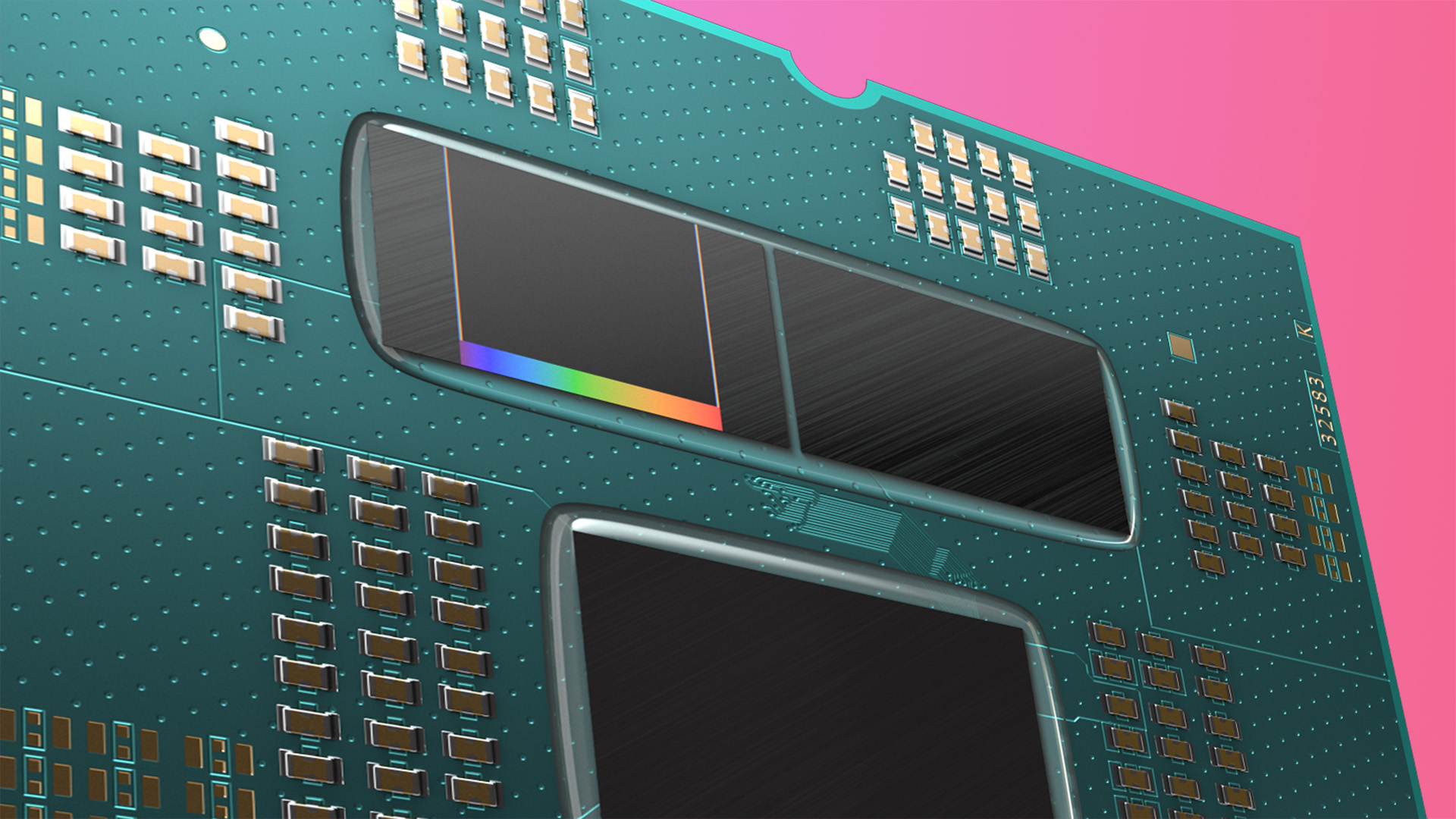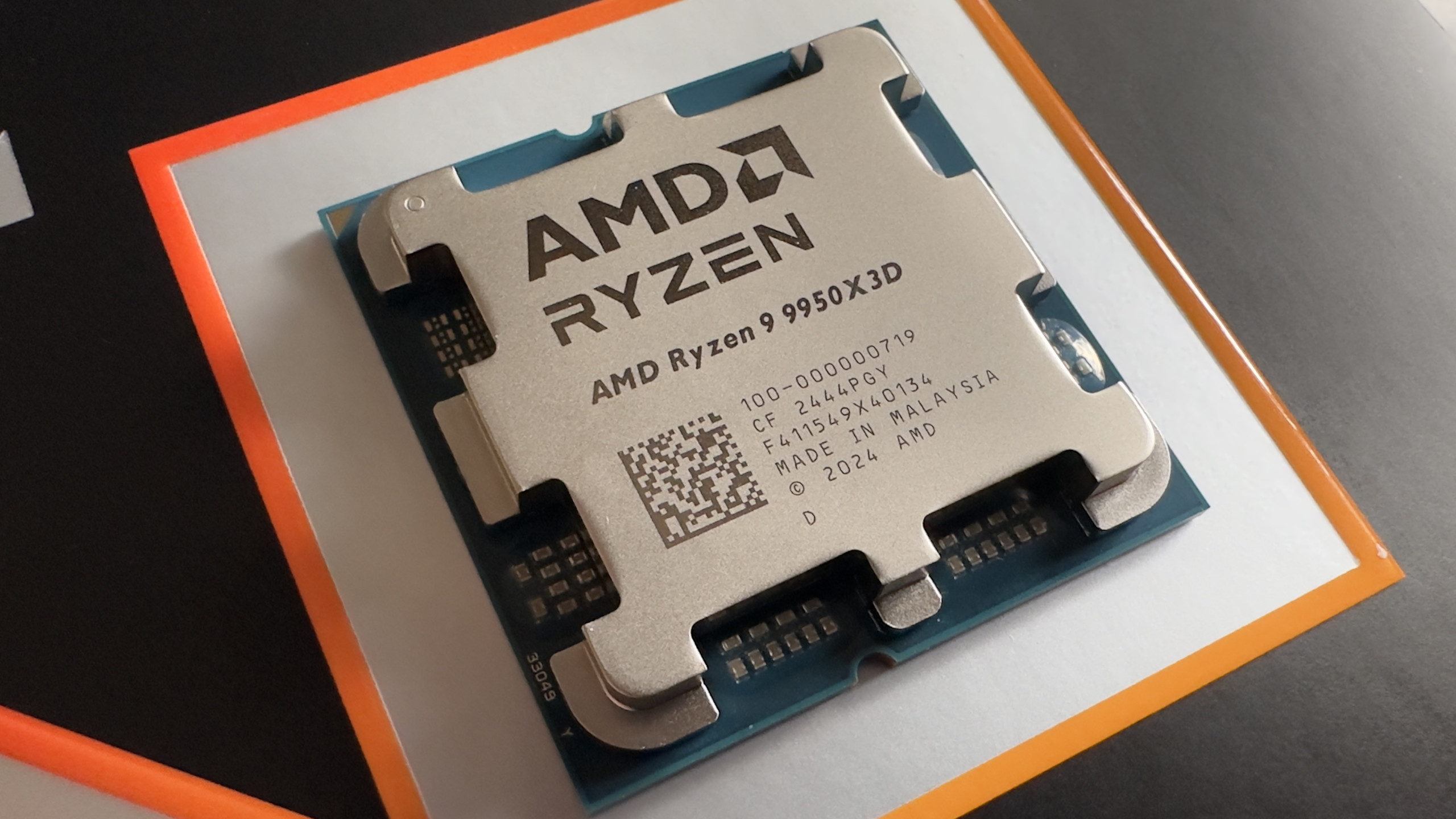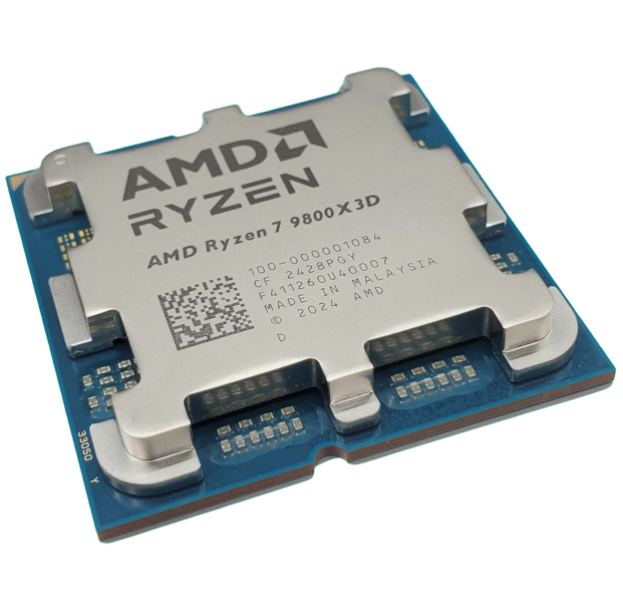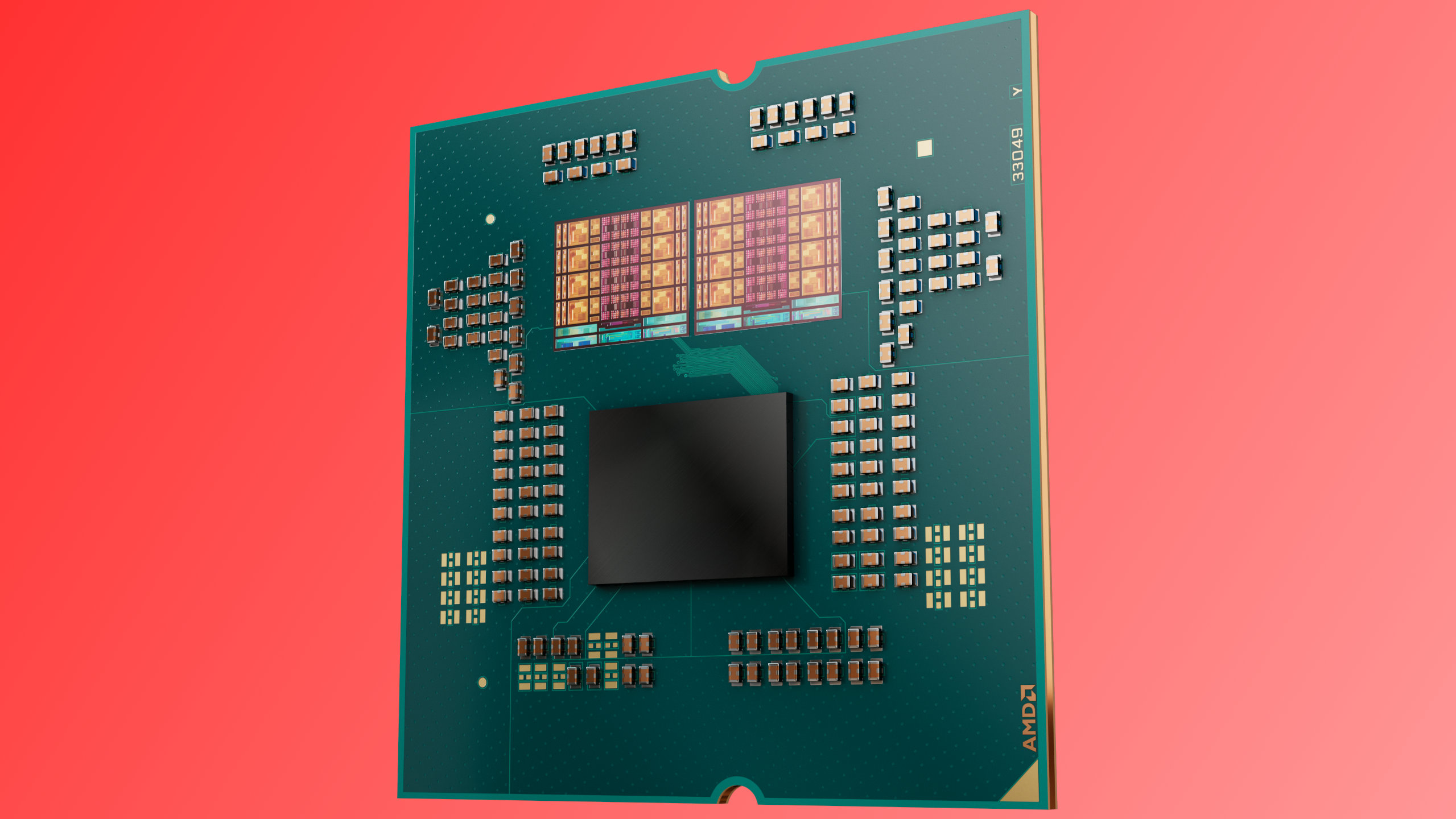If the sales of Nvidia’s $2,000+ RTX 5090 have proved one thing, it’s that there are plenty of PC gamers out there who are willing to spend any amount of money to have the most extreme hardware possible in their rigs. So, if the rumour that AMD is planning to release a desktop Ryzen processor with 192 MB of L3 cache turns out to be correct, then there will be another painfully pricey part for enthusiasts to spend their hard-earned cash on.
The rumour in question comes from X user chi11eddog (via ComputerBase), who claims AMD has a new Zen 5 Ryzen CPU in the pipeline. It’s basically a Ryzen 9 9950X3D but with a 3D V-Cache tile added to all the CCDs (Core Complex Die) in the CPU package, pushing the total L3 cache up to a heady 192 MB, and power limit from 170 W to 200 W.
New Granite Ridge CPU on the way.8C/16T/120W/96MB L3 Cache. 16C/32T/200W/192MB L3 Cache. 192MB…🧐🧐🧐August 4, 2025
While AMD has done this for workstation and server-grade chips, such as the EPYC 9184X (12 CCDs, 768 MB of L3 cache), it has never done so for a desktop processor. “Such a processor would simply be too expensive and games would not benefit from a second CCD with 3D V-Cache to the same extent as the step from 32 to 96 MB L3 cache for one CCD,” it said back in January when asked why.
If you prise the headspreader off a Ryzen 9 9950X3D, you’ll spot three chiplets on the green circuit board. The largest is the IOD (Input/Output Die), which contains a little integrated GPU and controllers for RAM, PCIe lanes, and USB ports. Nestled nearby are two CCDs—the processing cores and cache—but one will look slightly different from the other. That’s because there’s a slice of 3D V-Cache, 64 MB in capacity, bonded to the underside of that CCD.
Through a combination of Windows’ thread scheduler and AMD’s hardware and software, the instruction threads generated by a game are sent to the cache-heavy CCD, leaving the other one to handle everything else. The L3 cache in Ryzen chips is a victim cache, storing data that’s booted out of a core’s L2 cache when there’s no room for it.

Many games greatly benefit from this, as it means the cores don’t have to wait for data to be hauled over from system memory. Cache takes up a lot of space within a CPU die, which is why AMD developed its 3D V-Cache tech, to greatly increase the L3 cache capacity without making the chips massively bigger.
Today’s big games are developed for consoles and PCs, and the CPUs in the former are all eight-core, 16-thread processors. Hence why AMD has always stuck 3D V-Cache on just one CCD for its gaming-focused Ryzens: games just don’t create enough cache-sensitive threads to warrant the need for 16-core processors with mountains of L3 cache.
So, if this rumour is indeed true, why would AMD release a Ryzen 9 CPU with both CCDs packed with 3D V-Cache? Well, as I pointed out at the very start, Nvidia has sold an awful lot of GeForce RTX 5090 graphics cards, even though they’re at least $2,000 in price. You can buy an entire gaming PC for that kind of money, but it doesn’t put enthusiasts off. And I dare say that something like a $1,000 Ryzen with 192 MB of L3 cache would be treated in the same way.
Even if it’s only 5% better than the Ryzen 9 9950X3D, there would be enough PC gamers out there, keen on snapping up, say a 9990X3D, for AMD to consider making it. And it really wouldn’t cost them all that much to do so because it has to produce Zen 5 CCDs with 3D V-cache for four SKUs: the Ryzen 7 9800X3D, Ryzen 9 9900X3D, Ryzen 9 9950X3D, and the laptop Ryzen 9 9955HX3D.
Adding one more SKU shouldn’t be a major drain on the supply of the special CCDs, especially given that a 9990X3D isn’t going to sell in the same kind of numbers as the 9800X3D.
Sharp-eyed readers will have noticed that the X post actually mentions two new Ryzens, but the other specs are identical to those of the Ryzen 7 9800X3D. What that could be is the Zen 5 version of the Ryzen 7 5700X3D, i.e. a 9800X3D but with lower clock speeds. A cheaper 9800X3D would certainly go down very well.

Of course, all of this is just conjecture based on a single X post (though the user in question does have a history in making correct claims about future AMD chips), and none of it might never happen. If it does, though, all it will do is further confirm AMD’s dominance of the gaming CPU market. So long as we still get affordable processors that are great for games, lower down the stack, then I’m okay with it doing whatever it wants in the ultra-enthusiast space.

Best CPU for gaming 2025
